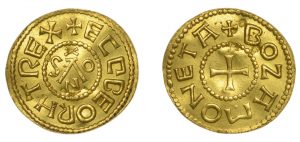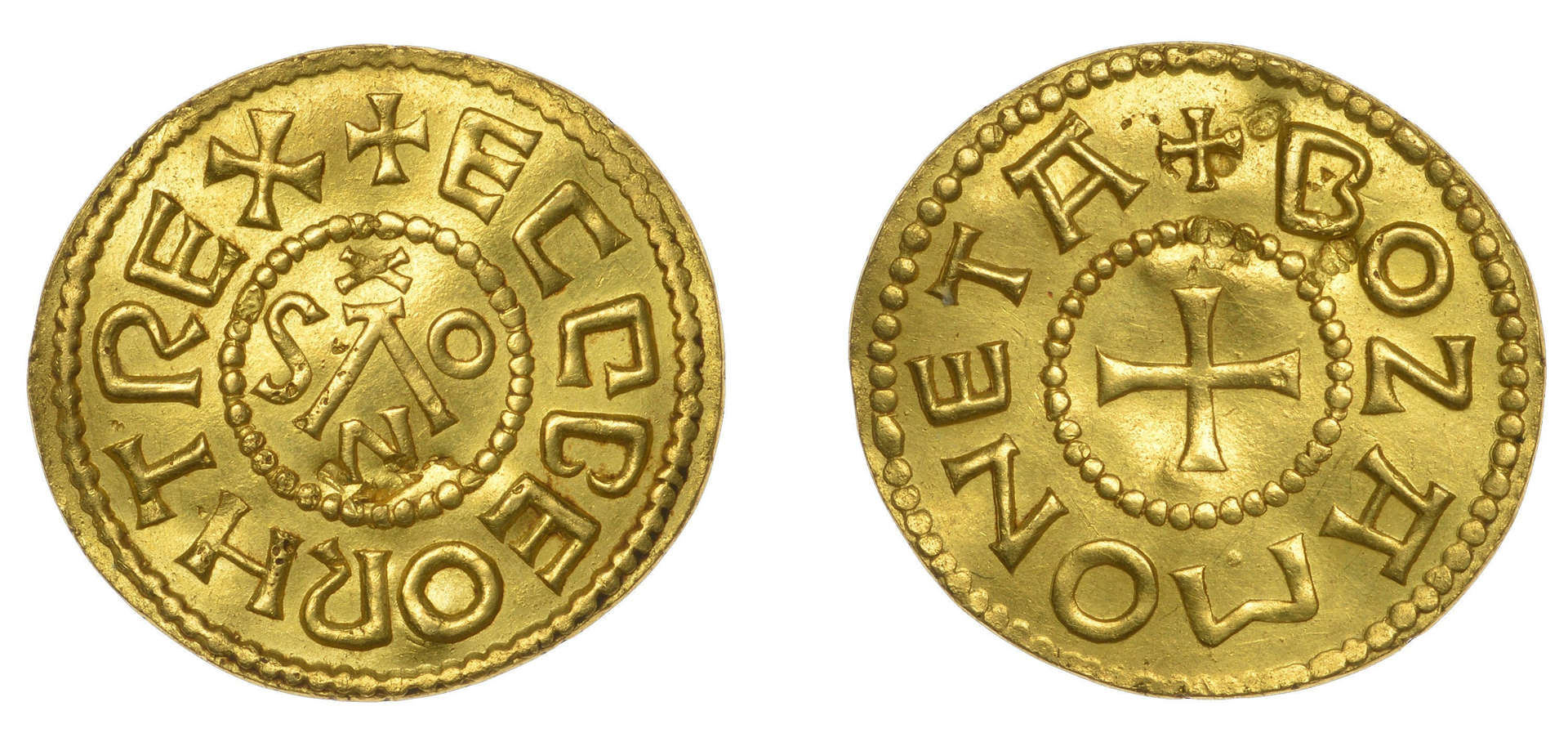
A rare Anglo-Saxon gold coin found in a field could fetch £200,000 at auction.
The Gold Penny – or Mancus of 30 Pence – was struck between 802 and 839 during the reign of Ecgberht, King of the West Saxons.
The coin was ordered for use at ceremonial or religious services.
It is thought to have been minted in Southampton or Winchester.
It was unearthed in Wiltshire by a metal detectorist in March 2020.
It is said to be the only late Anglo-Saxon gold coin in private hands.
Eight other specimens are held by institutions – the British Museum has seven of them.
Peter Preston-Morley, at auctioneers Dix Noonan Webb, said:
“It is very exciting to see this coin, gold coins of this monarch were completely unknown until this one was found.
“This composition is consistent with that of natural gold which has been neither refined nor artificially alloyed.
“Gold of such purity is particularly malleable and easy to strike, but also more prone to wear and damage.
”None of the surface marks seem consistent with damage or alteration caused by attempts at mounting the coin for its use as a brooch or pendant.“
”This coin probably represents a mancus, a gold denomination that first appeared in central and northern Italy, but was current in England already before the year 800.
”Mancuses would have been extremely valuable coins.“
The coin is expected to fetch between £150,000 and £200,000 at auction on 8 September.





















